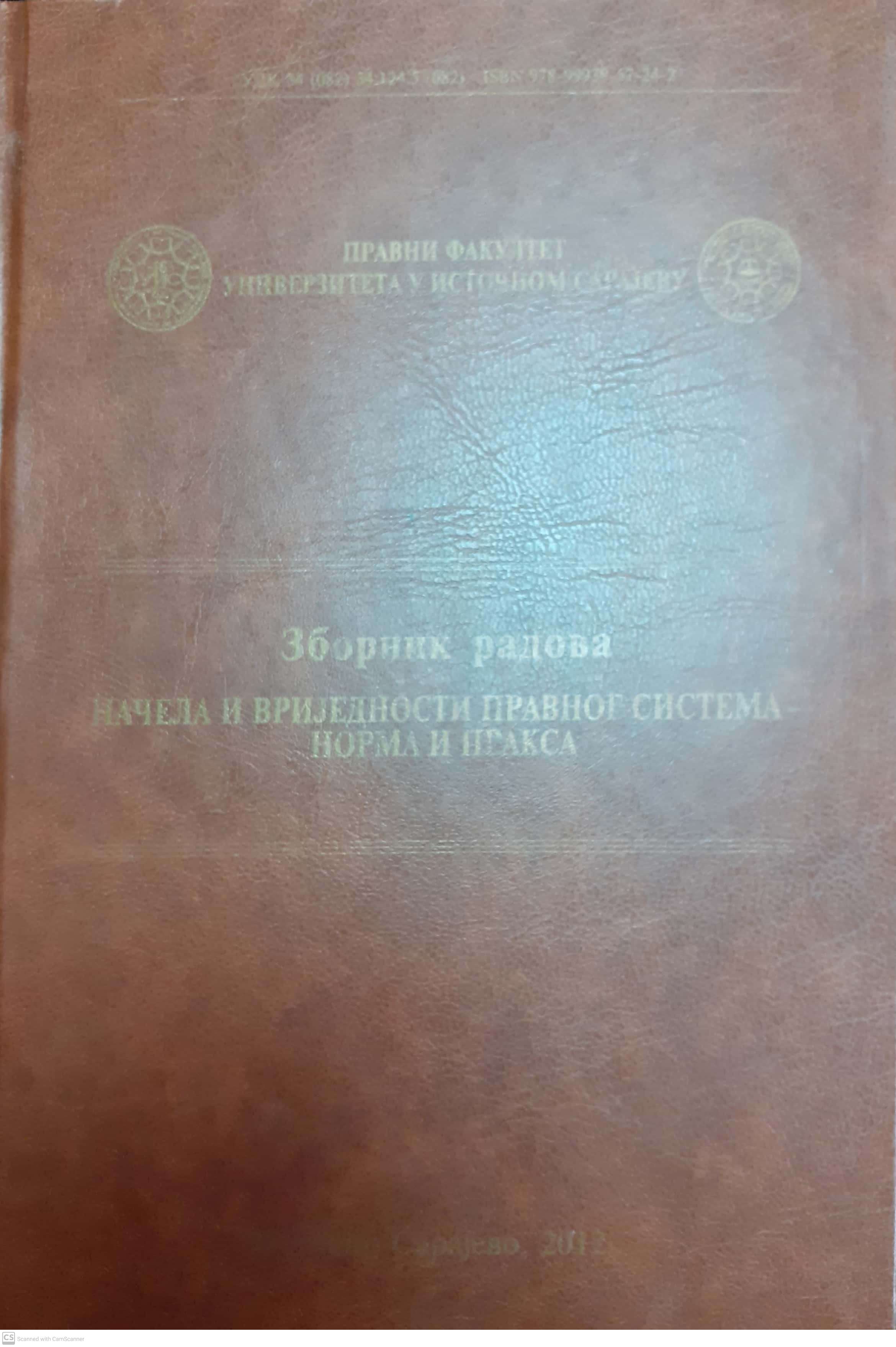О правним лековима у поступку извршења и обезбеђења
On Legal Remedies in the Executive and Security Proceedings
Author(s): Vladimir Boranijašević
Subject(s): Law, Constitution, Jurisprudence
Published by: Правни факултет Универзитета у Источном Сарајеву
Keywords: Executive and security proceedings;Legal remedy;Objection;Complaint;Claimant;Debtor;Enforceable document;
Summary/Abstract: By bringing the Law on Execution and Security in 2011 the work on the reform of the executive judicial procedures in the Republic of Serbia was completed. The legislator regulated legal remedies in a new way in the executive and security proceedings. The basic legal remedy in the executive and security proceedings is objection. The claimant and debtor can claim an objection to the enforcement order brought on the basis of an enforceable document, while the debtor can also claim an objection to the enforcement order brought on the basis of an authentic document. The law regulates in detail the reasons for claiming an objection, as well as the very procedure of the objection. As compared to the previous legal decisions, regulations of the new process law have eliminated certain legal remedies. Complaint no longer acts as a legal remedy which used to be decided upon by a higher court and used to represent a general concept for the series of legal remedies against decisions brought by the court of first instance in the enforcement procedure. Some other legal remedies have also been eliminated from the executive and security proceedings. When it comes to elimination of complaint as a legal remedy in the executive and security proceedings it is necessary to mention that the attitudes of the professional public are different. There are some opinions that the system of legal remedies regulated by the law is inappropriate, that it does not correspond to the concept of essential two-instance decisions, since two instances are not provided in an adequate way and, consequently, questions the right to an effective legal remedy. On the other hand, certain authors consider unacceptable the attitude that abolition of complaint eliminates the right to an effective legal remedy, considering that it is not necessary to guarantee the right to a complaint and that the right to this kind of legal remedy can be realized by prescribing the right to some other remedy that does not have to be decided upon by a higher court.We could conclude that an objection as a legal remedy in the executive and security proceedings is effective from the aspect of economy and efficacy of the procedure, so it corresponds to the objective and purpose of this procedure. However, if we take into account the fact that an objection is decided upon by the court of the same level and this violates the principle of two instances, that division of the jurisprudence is caused, that eventual judge errors are decided upon in the same procedure, I am prone to the opinion that legal regulations in the area of legal remedies should be revised. In this way, by reintroducing complaint, the system of monitoring work of executive judges out of the frames of the court bringing decisions would be enabled, and in this way the interested parties addressing the Constitutional Court of the Republic of Serbia and the European Court for Human Rights in order to protect their rights could be prevented.
- Page Range: 152-167
- Page Count: 16
- Publication Year: 2011
- Language: Serbian
- Content File-PDF

